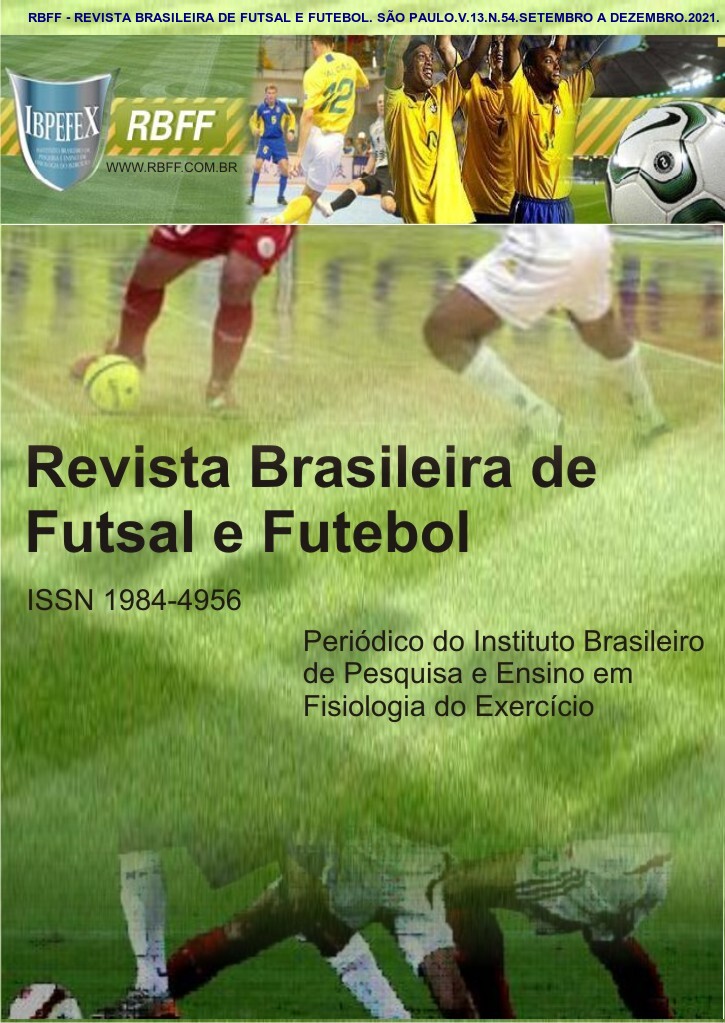The importance of ball possession in football: an analysis of the Portuguese teams FC Porto and SL Benfica
Keywords:
Ball possession, Portuguese Championship, Porto, BenficaAbstract
This work aims to analyze the importance of possession of the ball in football, as well as to verify if it is determinant for the success of a football team, for the analysis the Portuguese football championship was chosen, the choice is due to the good training of Portuguese coaches, and the study of the game of the University of Porto and the theorists Vitor Frade and Júlio Garganta. The survey was carried out using data from the official website of the Portuguese Championship called (Primeira Liga Nós), which has the Portuguese football federation as its responsible federation, 68 games in total in the championship (Primeira Liga Nós), 34 team games were searched. from Porto and 34 games from the Benfica team, and those games researched by these two teams were analyzed for their ball possession if it has any influence on the results of their games. Porto played 34 games in the Portuguese championship of those 34, Porto 29 games he had more ball possession than the opponent in the match, of those 29 games were 21 wins, 4 draws, and 4 losses, and only 5 games Porto was with less possession of the ball in the match than their opponent and in these 5 games Porto won them all. Benfica played 34 games in the Portuguese championship of those 34, Benfica 30 games he had more ball possession than the opponent in the match, of those 30 games were: 21 wins, 4 draws, 5 losses, and only 4 games Benfica stayed with less possession of the ball in the match than their opponent and in those 4 games Benfica won 3 games and drew 1 game. Concluded that yes it was fundamental for both teams during the championship, because almost always the two teams managed to win their games, and the game model of the Porto and Benfica teams are similar, in the offensive moment they are teams that keep the ball.
References
-Acar, M. F.; e colaboradores. Analysis of goals scored in the 2006 World Cup. In: T. Reilly e F. Korkusuz (Ed.). Science and Football VI: The Proceedings of the Sixth World Congress on Science and Football. New York. Routdlege. 2009. p.235-242.
-Azevedo, J. Por Dentro da Tática. Prime Books. Estoril. 2011.
-Carosio, M. La observación de las clases de educación física como instrumento de ayuda profesional. Lecturas Educación Física y Deportes. Revista digital. Núm. 41. 2001.
-Caty, D.; e colaboradores. Le temps, le jeu et les sports collectifs. eJRIEPS. Vol. 17. Núm. 1. p.3-16. 2009.
-Franks, I. M. The effects of experience on the detection and location of performance differences in a gymnastic thecnique. Research Quarterly for Exercise and Sports. Núm. 64. p. 227-231. 1993.
-Garganta, J. Modelação tática do jogo de futebol. Estudo da organização da fase ofensiva em equipas de alto rendimento. Tese de doutoramento, Faculdade de Ciências do Desporto e Educação Física. Porto. Portugal. 1997.
-Hughes, M.; Franks, I. Analysis of passing sequences, shots and goals in soccer. Journal of Sports Sciences. Vol. 23. Núm. 5. p.509-514. 2005.
-Oliveira, G. Conhecimento específico em futebol. Contributos para a definição de uma matriz dinâmica do processo de ensino-aprendizagem/treino do jogo. 2004. Dissertação de Mestrado. Faculdade de Ciências do Desporto e Educação Física da Universidade do Porto. Porto. Portugal.
-Santos, R. M. M.; Andrade, M. O. C.; Costa, I. T. Análise da relação entre a circulação e o tempo de posse de bola da seleção espanhola de futebol na Copa do Mundo Fifa ® 2010 R. Min. Educ. Fís. Vol. 22. Núm. 1. p.34-43. 2014.
Downloads
Published
How to Cite
Issue
Section
License
Authors who publish in this journal agree to the following terms:
- Authors retain the copyright and grant the journal the right of first publication, with work simultaneously licensed under the Creative Commons Attribution License BY-NC which allows the sharing of the work with acknowledgment of the authorship of the work and initial publication in this journal.
- Authors are authorized to enter into additional contracts separately for non-exclusive distribution of the version of the work published in this journal (eg, publishing in institutional repository or book chapter), with acknowledgment of authorship and initial publication in this journal.
- Authors are allowed and encouraged to post and distribute their work online (eg, in institutional repositories or on their personal page) at any point before or during the editorial process, as this can bring about productive change as well as increase impact and impact. citation of published work (See The Effect of Free Access).






